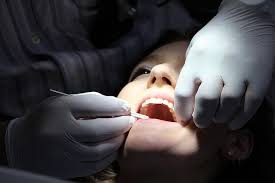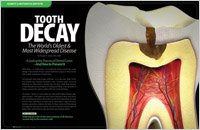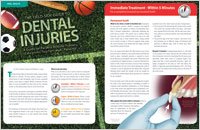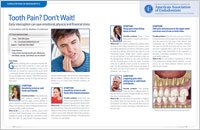Helpful Tips To Prevent Cavities
Home > Helpful Tips To Prevent Cavities
Cavities are holes in our teeth due to the acid attacks produced by disease-causing bacteria. Acids in plaque weaken the tooth enamel by removing minerals. Cavities develop from the weakened parts of the tooth enamel and start damaging the rest of the tooth structure.
As a trusted dentist in Elkin, NC, ManiDental aims to help prevent cavities in the community by sharing some helpful tips. Maintain good oral hygiene and prevent cavities with Dr. Nicole Manigault and our team to achieve a beautiful and healthy smile that lasts.
Fight Cavities With Daily Brushing & Flossing
Cavities can become irreversible when the damage goes through your tooth enamel. Brushing and flossing are the two hallmarks of dental hygiene the remove loads of bacteria from your mouth. Bacteria thrive from the sugar in the food and drinks that you eat. Once they have accumulated the sugars, bacteria will form plaque, particularly in the gum line and between your teeth.
Prevent plaque buildup by brushing your teeth with fluoride toothpaste for two minutes at least twice a day. The best brushing technique is a circular brushing motion with gentle pressure to avoid scratching the surface of your tooth enamel.
Brushing without flossing never makes your dental hygiene complete. Dental floss helps clean the hard-to-reach areas between your teeth. Proper flossing involves the up-down motion and angling the floss to each side of the teeth. One of the best practices is to floss before brushing your teeth at night to thoroughly remove the bacteria on the surface and between your teeth.
Your Diet Matters To Your Teeth
Eating and drinking acidic and sugary dishes and drinks are damaging to your teeth. Our tooth enamel is sturdy but not for the strong acids.
The tooth enamel loses its minerals which makes you prone to tooth decay. Drinking water will always be the best option to keep you hydrated without damaging your teeth. Try to limit or avoid drinking the following foods and beverages:
- Soda (sugar-free or not)
- Energy drinks
- Sugary drinks
- Fruits juices
- Wine
- Tomatoes
- Pickled products
Sugary and starchy foods feed the disease-causing bacteria in your mouth. If you have a sweet tooth, you can at least brush your teeth more frequently to reduce loads of bacteria and sugar in your mouth. Also, incorporate more green leafy vegetables and fruits with natural tooth-cleaning properties like apples and pears.

See Your Dentist Regularly

Routine professional cleanings and oral exams are a great way to maintain good oral health. Plaque and tartar buildup in certain areas of your teeth can be hard to remove, and only your dental hygienist can clean them for you.
Preventive measures like dental sealants applied on the chewing surfaces of your teeth can save you both from tooth pain and dental costs due to cavities. Your dentist may also advise you about conditions like dry mouth which increases your risk for tooth decay and gum disease.
Regular oral exams also help your dentist monitor any progression of sores and lumps that may indicate a possible sign of oral cancer. Early detection of cavities also prevents the infection of the blood vessels of your damaged tooth and any risk of tooth abscess.
Dental visits that are geared towards preventive treatments can also keep expensive dental costs at bay. If cavities are left untreated, a simple fillings treatment can lead to major restorations like root canal therapy which can be costly.
Related Articles

Tooth decay is the number one reason children and adults lose teeth during their lifetime. Yet many people don’t realize that it is a preventable infection. This article explores the causes of tooth decay, its prevention, and the relationship to bacteria, sugars, and acids…
Accidents to the teeth, jaws and mouth can happen at any time during any sporting activity. Proper attention can save pain, alleviate anxiety and costly dental treatment. A little knowledge, as they say, can go along way. This field-side guide briefly explains some simple rules…
Pain is a protective response that informs the body that something is wrong. Tooth pain, specifically, is caused by a reaction of the nerves inside a tooth’s pulp chamber, with the severity dependent upon the type and degree of the stimulus…
Dentistry You Can Trust for the Whole Family
Testimonials



















